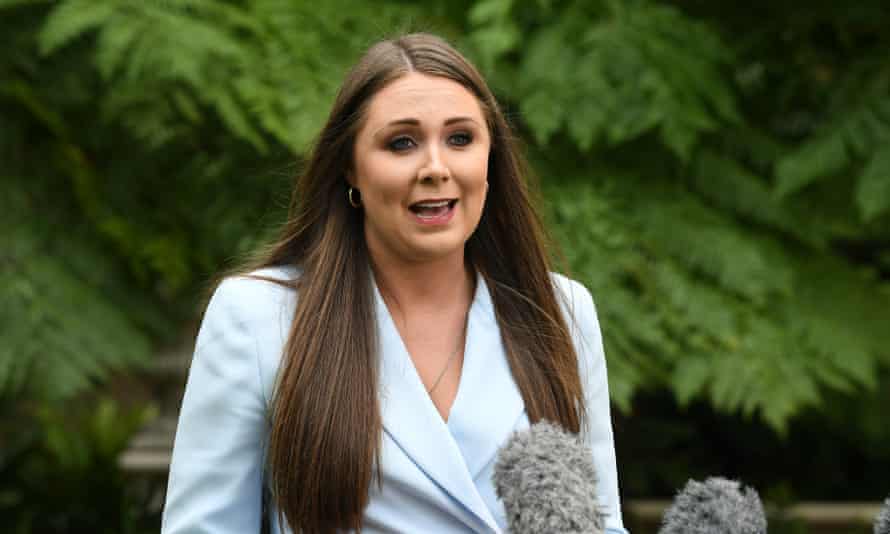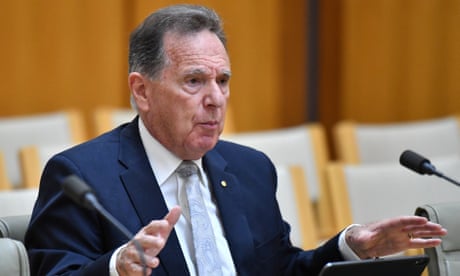Extract from The Guardian
State environment minister Meaghan Scanlon wants the commonwealth to introduce strong national standards before she takes on approval powers

Last modified on Fri 4 Jun 2021 03.31 AEST
Queensland says it will resist a Morrison government push for states to take on greater responsibility for environmental decision-making unless it backs stronger national standards to protect wildlife.
The federal Coalition is attempting to change national environment laws to allow it to sign bilateral deals with the states and territories to give them “single touch” environment approval powers for significant developments.
Critics say it is pushing ahead with the change without having formally responded to the recommendations of the former competition watchdog Graeme Samuel’s statutory review of the Environment Protection and Biodiversity Conservation [EPBC] Act, which was released in January.
Samuel’s review found the laws had been ineffective in protecting the country’s wildlife, that the nation’s environment was in unsustainable decline and called for an overhaul.
Queensland’s environment minister, Meaghan Scanlon, said the commonwealth must respond fully to the Samuel review, including introducing strong national environmental standards, before the state would seriously discuss taking on approval powers.
Speaking at a forum of conservationists on Wednesday night, Scanlon said she had written to her federal environment counterpart, Sussan Ley, urging her to respond to all 38 of Samuel’s recommendations.
“The Samuel review says those recommendations should not be cherry-picked, but that is exactly what the commonwealth has done,” Scanlon said. “A number of things need to be ticked off before we enter any genuine negotiations on behalf of the state.”
Samuel’s report included draft interim environmental standards that were developed with a group of experts and recommended the government adopt them immediately. The Morrison government has been criticised by environmentalists for instead releasing “watered down” environmental standards that just mimic the failing existing laws.
Scanlon said Queensland’s concerns included ensuring the cost of environmental protection was not “unreasonably shifted” to the states and territories.
Her call follows the New South Wales Liberal environment minister, Matt Kean, urging the Morrison government to back strong environmental standards and accept Samuel’s recommendation that it establish an independent national environment regulator outside the federal department.
Ley rebuffed Scanlon’s call. She said premiers and chief ministers had supported “single touch” environmental approvals as part of national cabinet discussions, and backed the development of national standards that reflected “the current requirements of the EPBC Act, while subsequent phases of reform are progressed”.
She said the government would focus on bilateral agreements with states that were “genuine about facilitating sustainable investment and the creation of jobs”. She said she had committed at an environment ministers meeting to a reform timeline, and ministers had agreed to continue to work constructively on bilateral agreements.
“Those who support getting the process started are supporting the environment and our economic recovery. Those who want to cling to the unnecessary complexities of current system can do so,” Ley said.
Guardian Australia reported last year that the Western Australian government had pushed for changes to the law that would transfer responsibility for decisions under national laws to the states.
Conservationists applauded the Queensland government’s stance. David Copeman, the director of the state Conservation Council, said it was “a real win for nature and threatened species”.
Suzanne Milthorpe, the national laws campaign manager at the Wilderness Society, said the Morrison government needed to respond to the Samuel review’s recommendations fully, not in a piecemeal fashion.
Milthorpe said the government’s published standards were based on failed legislation and would “lock-in” further degradation of the environment and risks to threatened species. “I would hesitate to call them standards,” she said.
Basha Stasak, the nature program manager at the Australian Conservation Foundation, said Samuels had called for “outcomes-focused standards” after consulting with experts, non-government groups and the business community, and the government had “completely disregarded” his advice.
Tooni Mahto, the campaign manager at the Australian Marine Conservation Society, said stronger standards were essential to protect marine ecosystems.
The Morrison government’s bill to introduce the “single touch” system has stalled in the Senate, where it has been opposed by the opposition and most of the crossbench.
The draft legislation includes a clause that allows a project to go ahead if the minister is “satisfied” a development is in the public interest. A similar exemption is included in the current laws.

No comments:
Post a Comment